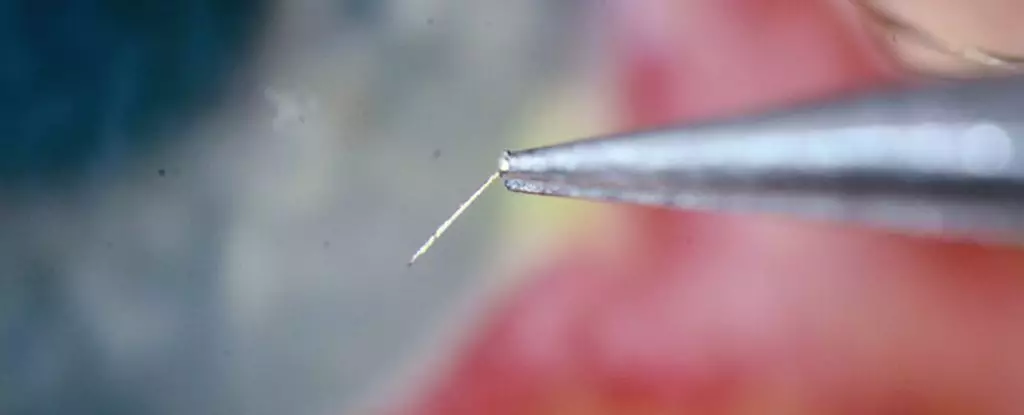Getting stung by a bee is never a pleasant experience, but imagine the horror of having a barbed bee stinger stuck in your eyeball. This was the unfortunate situation faced by a 55-year-old man who sought help at a local emergency department after being stung. Despite the hospital’s best efforts to remove the stinger, much of it remained embedded in the patient’s iris, leading to a significant decline in his vision and an increase in pain within just two days.
Fearing for his vision, the man visited an ophthalmology clinic where specialists used fluorescent dye to identify the tiny foreign object lodged in his eye. With the help of jeweler’s forceps, the rest of the stinger was carefully extracted, and the patient was prescribed antibacterial eyedrops and steroids to aid in his recovery. Five months later, his vision had improved to a near perfect 20/25, showcasing the importance of timely and specialized treatment in such cases.
Ophthalmologists warn that ocular bee stings can lead to severe inflammation and potential long-term complications if not addressed promptly. The barbed stingers of bees can easily penetrate eye tissue, causing deep-seated inflammation and exposing the eyeball to venomous toxins. In some cases, if the bee is separated from its stinger during the incident, part of its abdomen can also become lodged in the eye, exacerbating the damage.
While removing the stinger can help halt the body’s immune response and alleviate symptoms, it may not always be advisable or necessary. In situations where the stinger is deeply embedded or requires surgical intervention, some ophthalmologists prefer to leave it in place to prevent further harm. Surprisingly, there are instances where patients maintain good vision despite the presence of a foreign object in the eye, highlighting the complexity of managing such cases.
The case of the man with the bee stinger in his eye serves as a reminder of the potential dangers and complications associated with ocular bee stings. Prompt medical intervention led to a successful resolution in this instance, but the severity of such injuries should not be underestimated. Ophthalmologists emphasize the importance of seeking specialized care for ocular bee stings to prevent long-term damage and ensure the best possible outcome for the patient.


Leave a Reply